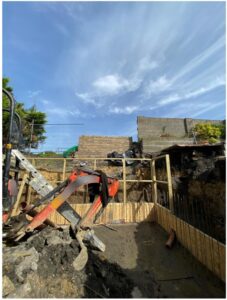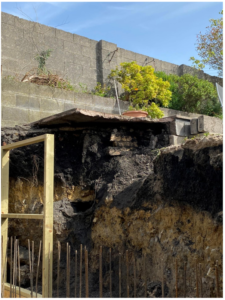Company fined for unsafe scaffolding
Workers scrambled up the rungs of an unsafe scaffold to work at a block of flats in Merseyside.
The company in question, A.I.M Access Solutions Ltd has been fined £30,000 for its failure to assemble safe scaffolding following an investigation by the Health and Safety Executive (HSE).
In May 2021, the workplace regulator identified serious issues with the construction of the scaffold and the assembly instructions had not been followed while the scaffold tower was being built on Rice Hey Road. No ladder was used access the scaffold. Instead, workers climbed the rungs of the scaffold itself as opposed to a proprietary ladder.
HSE has well established guidance on tower scaffolds. Many people are injured each year when they fall from towers or when the tower overturns. The incidents that occur are mainly caused by:
- Defects in the erected scaffold – where the tower structure is incorrectly assembled or where a platform guardrail is missing.
- Erection and dismantling – The manufacturer, supplier or hirer has a duty to provide an instruction manual explaining the erection sequence, including any bracing requirements and the height to which the tower can be erected safely. This information must be passed on to the person erecting the tower.
The HSE investigation was prompted after the regulator was notified of the death of A.I.M Access Solutions Ltd employee Robert Duffy.
The 45-year-old passed away in hospital on 23 May 2021, three days after sustaining serious injuries while working at the site on Rice Hey Road.
The prosecution of A.I.M Access Solutions Ltd, of Manorside Gores Road, Knowsley Industrial Park, Kirkby, was not brought on the grounds that the incident was causative of Mr Duffy’s death.
The firm pleaded guilty to breaching Section 2(1) of the Health and Safety at Work etc. Act 1974. It was fined £30,800 and ordered to pay £5,040.75 in costs at Wirral Magistrates’ Court on 27 February 2025.
HSE inspector Sam Eves said: “A.I.M Access Solutions Ltd did not ensure the tower scaffold was constructed correctly. The company failed to provide a safe way to get to and from the work platform, for example using an appropriately designed internal ladder.
“Companies should follow HSE guidance to ensure they effectively plan, manage and monitor similar construction work and reduce the risks to their employees.”
This prosecution was brought by HSE senior enforcement lawyer Daniel Poole and supported by HSE paralegal officer Helen Hugo.
Notes to editors:
- The Health and Safety Executive (HSE) is Britain’s national regulator for workplace health and safety. We are dedicated to protecting people and places, and helping everyone lead safer and healthier lives.
- More information about the legislation referred to in this case is available.
- Further details on the latest HSE news releases is available.
- HSE does not pass sentences, set guidelines or collect any fines imposed. Relevant sentencing guidelines must be followed unless the court is satisfied that it would be contrary to the interests of justice to do so. The sentencing guidelines for health and safety offences in England and Wales can be found here and for those in Scotland here.

